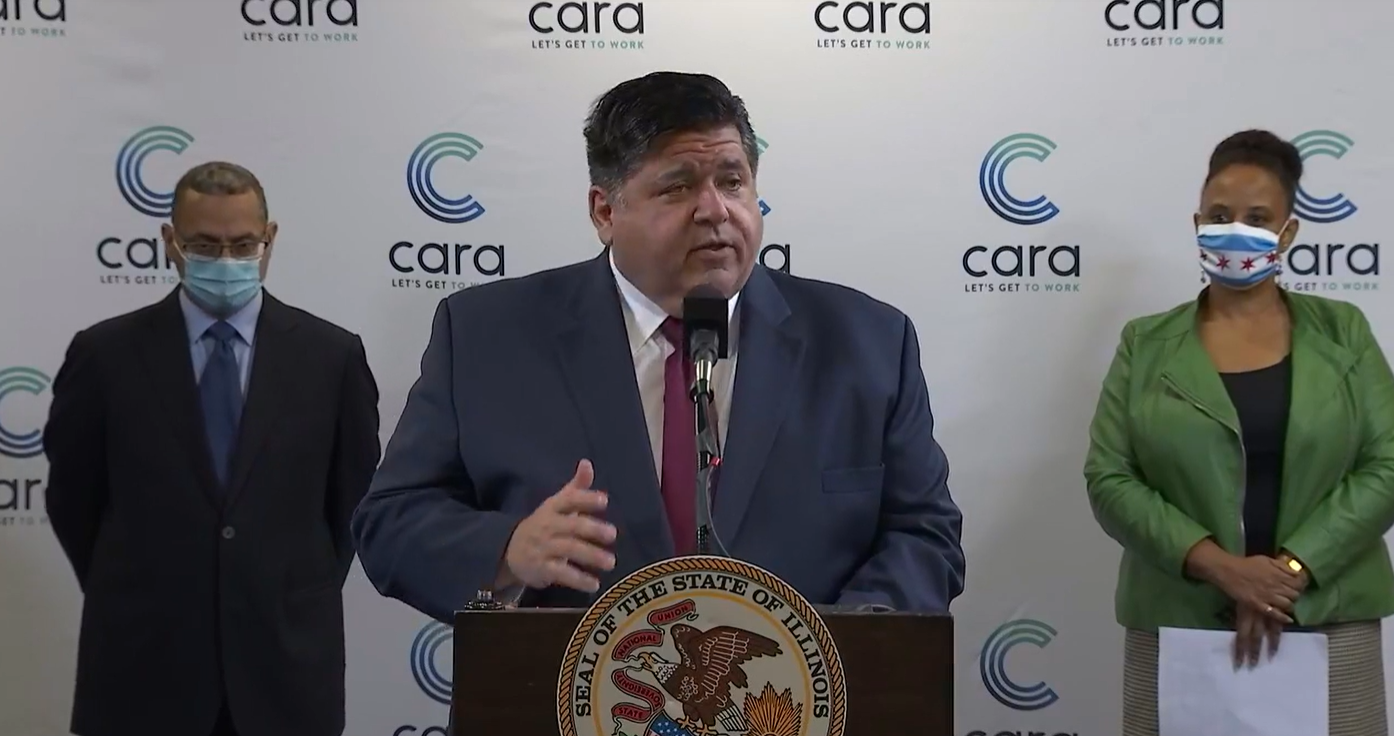Cara Plus Releases National Career Advancement Study

Study reveals key findings on workforce mobility from more than 2,100 frontline employees
Chicago – Cara Collective, a leader in poverty alleviation, is proud to announce the release of a national study on upward mobility for frontline employees: Bridging the Advancement Gap: What Frontline Employees Want—and What Employers Think They Want. The study was led by Cara Collective’s expansion arm, Cara Plus, thanks to analysis from McKinsey & Company and with support from Walmart.
Bridging the Advancement Gap is one of the largest national studies on frontline worker upward mobility. More than 2,100 frontline employees and 300 employers of various sizes, industries, and geographies were surveyed around topics including what frontline workers care most and least about with career advancement, employer misconceptions around opportunities for mobility, and how the COVID pandemic impacted frontline worker priorities, among others.
Key findings include insights on the priorities of frontline worker advancement such as opportunity for growth and better alignment of pay and skills. The study also shows stark differences between what resources frontline employees believe are available versus what their employers report, while also offering strategic, concrete actions employers can take.
“When we started exploring how to strengthen frontline worker upward mobility, we knew we had to start with frontline workers themselves,” said Sara Wasserteil, Managing Director of Expansion & Integration at Cara Collective. “Lifting up their experiences and priorities – and juxtaposing those alongside what employers perceive is happening in the workplace – provides a starting point for how we can close the advancement gap for frontline workers, and strengthen equity when it comes to who does and doesn’t advance in the workplace.”
In addition to drawing out trends from frontline workers across diverse industries and demographics, the report also uplifts themes from populations that have historically been given limited access to economic opportunity and mobility. This includes employees without a four-year degree, those who have been justice system-involved, and those who have been impacted by homelessness or recovery. The findings will illuminate how employers can better advance into these often-untapped talent pools.
“What we found when we looked at these populations, is that they are highly motivated to advance in their careers, and yet often have fewer opportunities to get ahead,” added Wasserteil. “If employers are willing to rethink who they hire and how they invest in them, they can unlock a highly motivated workforce ready to stay and grow in their firms. For example, as evidenced by this study, individuals who have been impacted by the criminal justice system advanced at a greater rate than any other demographic – across race and gender.”
The study furthers the work of Cara Plus’ inclusive employment portfolio, which helps corporations drive actionable change to hire and cultivate talent that has been historically sidelined from economic opportunity. The work leverages parent-organization Cara Collective’s 30-year history connecting untapped talent to more than 13,000 jobs at 70% same-firm, one-year retention rates.
Click here to read an executive summary.
###
About Cara Plus
As an entity of Cara Collective, Cara Plus engages companies and nonprofits across the nation to build, launch, and grow workforce solutions so that people experiencing poverty can find and keep quality employment. Since our launch, Cara Plus has worked with more than 20 companies and 50 nonprofits in 24 states to adopt and adapt our methodology and create more inclusive employment pathways around the country. To learn more, click here.
About Cara Collective
Cara Collective seeks to fuel a courageous national movement to eradicate relational and financial poverty. Through our four entities – Cara, Cleanslate, Cara Connects, and Cara Plus – we engage job seekers, employers, and other organizations across the country to break the cycle of poverty through the power and purpose of employment. Since 1991, we’ve helped more than 8,000 people get placed into more than 13,000 jobs and get started on their path to real and lasting success. To learn more, click here.
Contact: Mark Toriski
Director of Marketing & Communications
312.798.6723
mtoriski@carachicago.org


